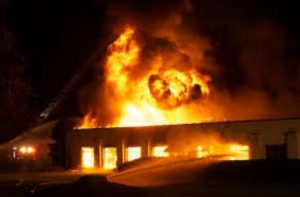Dozens of people have died in Canada amid an unprecedented heatwave that has smashed temperature records.
Police in the Vancouver area have responded to more than 130 sudden deaths since Friday. Most were elderly or had underlying health conditions, with heat often a contributing factor.
Canada broke its temperature record for a third straight day on Tuesday – 49.6C (121.3F) in Lytton, British Columbia.
The US north-west has also seen record highs – and a number of fatalities.
Experts say climate change is expected to increase the frequency of extreme weather events, such as heatwaves. However, linking any single event to global warming is complicated.
The heat over western parts of Canada and the US has been caused by a dome of static high-pressure hot air stretching from California to the Arctic territories. Temperatures have been easing in coastal areas but there is not much respite for inland regions.
Before Sunday, temperatures in Canada had never passed 45C.
British Columbia Premier John Horgan said the hottest week the province had ever experienced had led to “disastrous consequences for families and for communities”.
The number of heat-related fatalities is likely to rise as some areas say they have responded to sudden death incidents but have yet to collate the numbers.
In Vancouver alone, heat is believed to have been a contributing factor in the unexpected deaths of 65 people since Friday.
“I’ve been a police officer for 15 years and I’ve never experienced the volume of sudden deaths that have come in in such a short period of time,” police sergeant Steve Addison said. Three or four a day is the normal number.
He said people were arriving at relatives’ homes and “finding them deceased”.
Dozens of officers have been redeployed in the city, while the increased volume of emergency calls has created a backlog and depleted police resources.
British Columbia Chief Coroner Lisa Lapointe said 100 more deaths than normal had been reported in the period from Friday to Monday.
The tiny village of Lytton, about 155 miles (250 km) east of Vancouver – and not much further south than London – has recorded all of Canada’s recent record highs.
Resident Meghan Fandrich said it had been “almost impossible” to go outside.
“It’s been intolerable,” she told the Globe & Mail newspaper. “We’re trying to stay indoors as much as possible. We’re used to the heat, and it’s a dry heat, but 30 [degrees] is a lot different from 47.”
Many homes in British Columbia do not have air conditioning as temperatures are usually far milder during the summer months.
One Vancouver resident told AFP news agency that hotels seemed to be sold out, as people flocked there for air-conditioning, adding: “I’ve never seen anything like this. I hope it never becomes like this ever again.”
The country’s weather service, Environment Canada, has issued heat warnings for the provinces of British Columbia and Alberta, along with areas of Saskatchewan, the Northwest Territories and Manitoba.
Jodi Hughes, weather anchor at Global News Calgary, told the BBC that firefighters were extremely concerned at the possibility of wild fires, possibly sparked by thunderstorms that could occur as the weather pattern changes.







